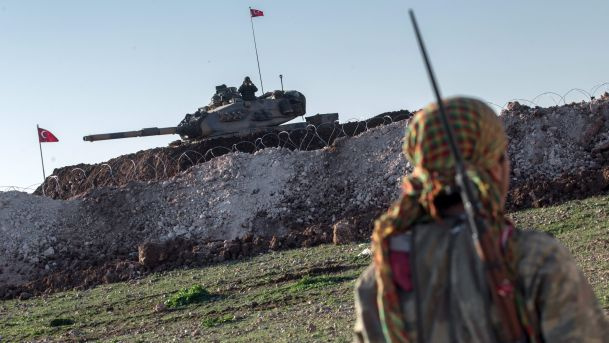Why Civil War in Iraqi Kurdistan is Possible

Recent incidents in Kirkuk --the Iraqi forces undisturbed entry into the city following withdrawal by some Peshmerga forces – have brought differences among Kurd groups in the Iraqi Kurdistan to the surface.
Both prominent parties in Kurdistan have accused each other of helping the fall of Kirkuk. Barzani’s letter to the Kurdish Parliament (implying his resignation) openly called “withdrawal from Kirkuk and leaving it to the Iraqi forces” a treason.
But why are the Barzanis and Talabanis in this blame game? After the independence referendum, which fueled nationalist sentiments, none of them is ready to take the responsibility of exiting disputed regions and tell people (particularly the Peshmerga and the young who, subject to nationalist propaganda, expected resistance) that resistance was never on the agenda at all.
Nonetheless, the danger of war is still there in the light of peaking nationalist sentiments and the war-longing forces among the young and Peshmerga of both parties.
Civil war in the Iraqi Kurdistan is likely if the leaders of the two parties continue to accuse each other, lose control of the situations, and become carried away with the atmosphere they have caused in the first place.
Another factor, again based on a miscalculation, adds to the possibility of war, that is to limit the post-referendum defeat within sporadic conflicts. Barzani will probably try to underline the shadow of war as a card to use in potential talks and secure his status through sporadic conflicts. In other words, he is pulling out the gun not to fire but that could lead to unpredictably catastrophic results.
Competition over leadership within the Patriotic Union of Kurdistan also increases the possibility of the war particularly because at least one of the contenders Kosrat Rasul Ali, a military leader, has shown inclination to use nationalist sentiments and war in his own favor. Unlike some PUK leaders who refused to back the referendum, he has thrown support behind the move, speaking of treason after the occupation of Kirkuk.
The political scene in Kurdistan and the two parties’ plots against each other reminds observers of Shakespeare’s plays, offering even the weakest possibility, here the civil war in the Iraqi Kurdistan.
At the moment, there is no organized or effective force able to prevent it. Such a war is actually the realization of the worst scenario possible.
Barzani’s gamble, backed even by non-local parties and groups, was aimed to resolve a hegemonic crisis manifested in the establishment of the Gorran Movement and other parties as well as increasing protests over corruption, and lack of freedom and justice.
The Barzani gamble failed but it does not mean the two dominant parties have come to the end of their lives.

